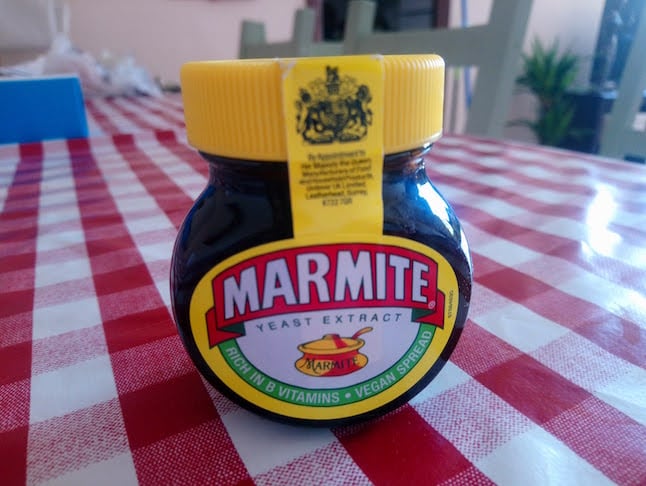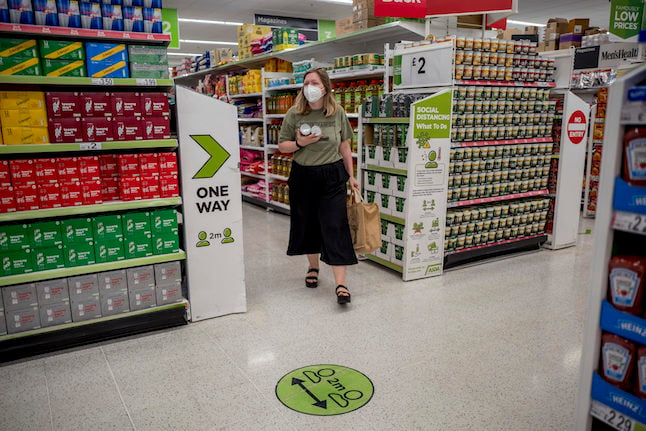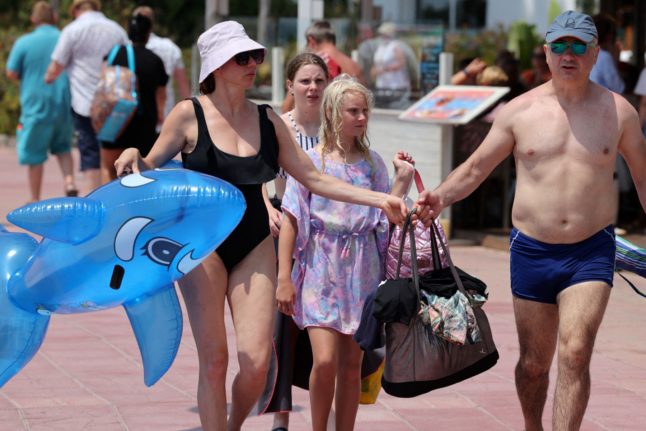UK food and drink exports to the EU are suffering a huge decline, costing the industry €2 billion in losses.
Among Member States, Spain is the country that’s seen the biggest drop in British produce arriving to its shores since Brexit, a 54 percent fall in 2021 when compared to 2019 figures.
The Local Spain spoke to Inge Barker who runs A Taste of Home – a chain of three British shops in Barcelona, Sitges and Cubelles in Catalonia – who told us how the situation is affecting her.
How has your store/business been affected by the drop in food exports from the UK?
“We’ve definitely been feeling it, Brexit has not been good for our business. With the drop in exports, extra costs, and red tape, it’s a total disaster.
I have three shops and lots of staff, at the moment, they are my main priority,” she said.
Are there any particular products that are affected more than others?
“Yes, at the moment it’s the meat and dairy which is being affected the most. This is because we now need to get a vet certificate for any animal products we want to import, and for this, we are forced to pay £100 on each order.
Right now we are ok for meat because we made lots of advance orders, but I don’t know what’s going to happen. There is also going to be an issue with Christmas products. We ordered our Christmas products such as crackers and puddings back in June, but now sellers are telling us they’re out of stock already.
Because all the crackers and other Christmas things like that are made in China costs have risen for these too and have added an extra level of problems. For an order that used to cost €900, it has now risen to something ridiculous like €5,000.
If you’re wanting a traditional British Christmas fare in Spain this year, you’ll have to buy your products early,” Barker warned.

Has this affected other costs too?
“Yes, everything is now more expensive. Transport costs have risen by £100 and we also need to pay 5 percent of the costs of goods on top of that. In addition, we are forced to pay extra for heat-treated palettes to be allowed into the EU.
Imagine that on your tin of corned beef you’re having to add all those extra costs, that’s going to be a very expensive can of beef.
Although not to do with Brexit, electricity prices have also gone sky high here in Spain and we are now getting bills of around €1,000 per month per shop.”
READ ALSO: Why is electricity in Spain more expensive than ever?
“People just don’t realise all the extra costs that are involved. They tell me ‘oh I can get a can of baked beans in the UK for 80p, why are you selling it for more?’ They have no idea how much it actually costs to get that can of beans here. In the UK there is only VAT to pay on luxury food items, but here in Spain, we have to pay VAT on all food products too.”
Are you able to source alternatives such as from Ireland for example? Is this easier?
“Most of our products are English and that’s what our customers want, so we can’t always source alternatives from Ireland. However, the transport is cheaper direct from Ireland, but we still have to pay import duties and VAT if we source products from there, so it doesn’t make it a lot cheaper.”
Are you having to raise your prices as a result?
“Up until now, we haven’t put up our prices, but soon everyone will be putting prices up and we won’t have a choice.
We also supply supermarkets all over Spain and some in Portugal. We will be able to survive this, but I know a lot of other British supermarkets in Spain are already in trouble and are having to close down due to rising costs and difficulty sourcing products.”
What are your most popular products that you fear may be affected or are already being affected by this?
“The product which we’re seeing being affected the most right now is clotted cream. We sell our clotted cream to hotels in Spain too, and even though we buy it from a Spanish supplier, they are having trouble now sourcing it from the UK.”
What do you see the future of British food exports being in Spain?
“Well, many of the shelves in the UK are empty now and our shelves are full. At the moment, we have a fantastic stock and have cornered the market on marmite, so hopefully we will be ok, but I don’t know what will happen with British exports in the future,” she concluded.
READ ALSO: Brexit news roundup: All the latest info for Brits in Spain



 Please whitelist us to continue reading.
Please whitelist us to continue reading.
If you’re paying import duty and VAT (that can’t be reclaimed) on food brought in from Ireland – another EU country – you’re doing it wrong. Our local Overseas Supermarket branch has taken on several great Irish brands to help fill the holes – small-minded customers that won’t accept those are likely what got the UK into this mess in the first place.
Brexit has really caused a right mess for all involved.